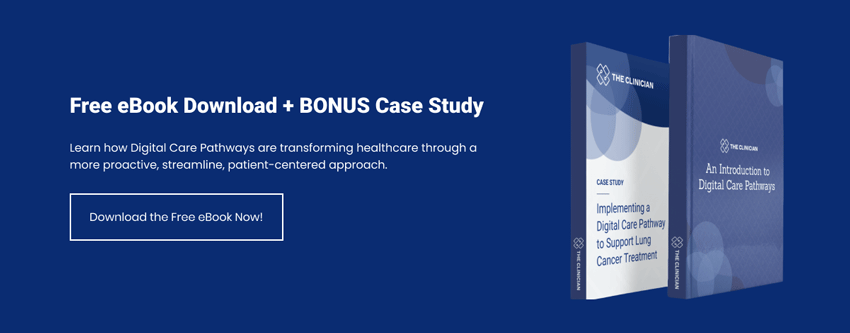How Digital Care Pathways Enhance the Patient Experience in Healthcare
As a patient, have you ever been annoyed while interacting with a healthcare provider because you were asked to provide the same information multiple times?
Have you ever been frustrated by needing to physically go to a healthcare facility when you felt there wasn’t much reason to do so?
Have you ever put off an interaction with a healthcare provider because you didn’t feel you had the time or didn’t want to deal with the hassle?
Digitising elements of the care pathway goes a long way toward addressing issues like these by enhancing convenience, efficiency, and ease for patients. There are more substantive benefits to digitisation as well, including improving health outcomes for patients, reducing waste, and lowering costs.
Digital Care Pathways
Digital Care Pathways (DCPs) employ digital technologies to support patients through their healthcare journeys, whether that be as simple as treatment for a sore throat or as complex as treatment for cancer. Across the spectrum of healthcare interactions, digitising care pathways presents healthcare systems with a way to better understand each patient’s health and deliver care that is more streamlined, proactive, personalised, and patient-centric.
Before and After with DCPs
In a traditional healthcare scenario, a patient leaves the hospital or a healthcare provider’s office and the interaction with the healthcare system ends. Consider instead the possibilities of a DCP:
On leaving the healthcare facility, the patient receives a short, digital survey asking her to rate the care she received. It takes just a moment of her time, but provides the institution with valuable information about how its “customers” perceive their care. The patient appreciates the opportunity to weigh in. Her feedback is forwarded to a quality officer who notes a pattern in the reports he receives and takes steps to address a recurring problem with patient experience. When the patient later returns, she is gratified to see that her feedback has made a difference.
Imagine in a separate example that a patient’s blood pressure is a concern in a routine check-up. In the traditional scenario, the HCP might ask the patient to return to their office in two weeks to have the blood pressure rechecked. With a DCP, the patient can connect their blood pressure cuff or similar device to a system that sends daily readings to the HCP, with tiered alerts automatically triggered if the patient’s BP exceeds set thresholds. The DCP also enables the patient to be sent instructions and educational materials, which help keep the patient engaged and motivated through the care journey.
While the timely exchange of information between patient and HCP described above supports enhanced health monitoring and therefore better outcomes, it can also help the patient feel more valued by the HCP and more closely connected to the healthcare organisation. So, in contrast to what one might expect, the digital experience can actually foster a deeper relationship between patients and HCPs. The relative ease of digital encounters reduces stress while improves timeliness of care thanks to intelligent alerts that reduce the risk of complications or adverse events arising when care is delayed.
Implementing DCPs with ZEDOC
Note that the most effective DCP plays out on a platform that spans and connects the entire healthcare offering seamlessly. It’s not a series of apps, login screens, portals, and passwords. It is a unified solution that simplifies rather than complicates the care pathway, and engages users rather than discouraging them.
We at The Clinician are pleased to offer exactly this sort of platform, ZEDOC. With ZEDOC at work, healthcare providers are able to collect, analyse, and act on each patient’s key outcome and experience information across the care continuum, supporting better care, better relationships between healthcare providers and patients, and a better understanding of how well the healthcare institution is serving its “customers”. By keeping patients and providers in sync at every point in the care pathway, ZEDOC provides healthcare organisations with a new way to deliver effective, efficient, and patient-focused healthcare.
Learn more about ZEDOC and digital care pathways.



